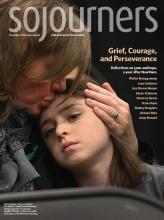I MET PASTORS Harvey, Alton, Charles, and Joel in Houston’s 5th Ward, a black neighborhood that in 1979 earned the title of “the most vicious quarter of Texas.” I was drawn there by a sermon I’d preached on Psalm 23 called “An experiment in crossing borders.” In it I asked my congregation, “What border is God leading you to cross? And who is waiting for you on the other side?”
Little did I know the profound impact that sermon would have on me.
Nearly five years later, I remember when these men stopped being “pastors at black churches on the other side of the 5th Ward border” and became “my people,” deeply connected as members of the body of Christ.
It was a moment of profound truth-telling, when I realized I was controlled more by the values of Western “racialized” culture than I was by the liberating gospel of Jesus and the alternative community to which I had given my life. It became clear to me that I’d affirmed myself and my identity through the lies of racial privilege, and done so at the expense of my brothers and sisters in Christ.
Michael Emerson, a sociologist from Rice University, provides us helpful language to understand how race works. Rather than analyzing racism (concretized for most of us through powerful images of slavery, hooded white supremacists, separate drinking fountains, and individual acts of hate), he invites us to analyze how our society is racialized.
Read the Full Article
